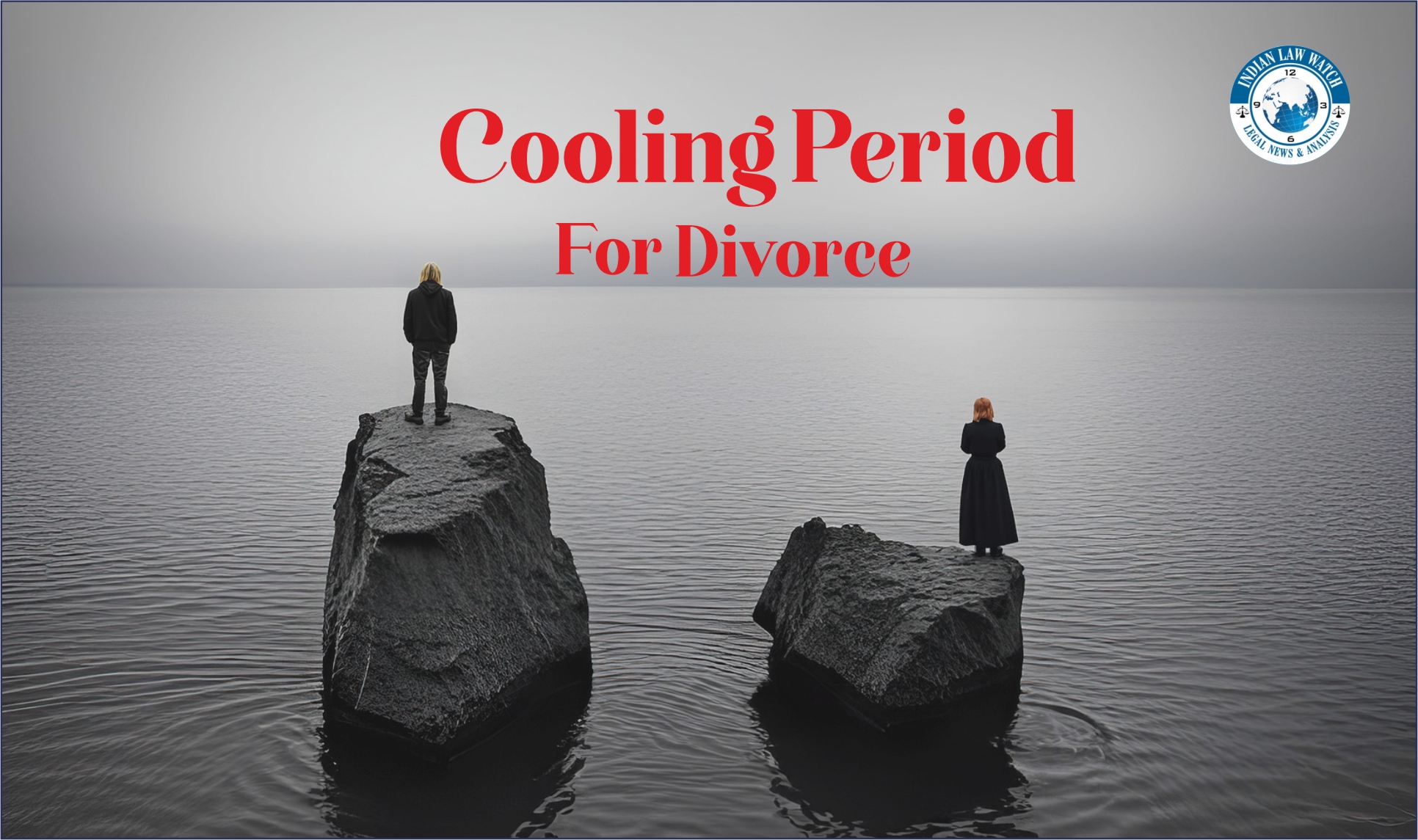
Cooling period causing the heat
It is indeed refreshing to observe that the Bombay High Court, in a highly commendable and logical oral judgment, has recently delivered a landmark ruling in the case of Sneha Akshay Garg and Akshay Sunil Garg vs. Nil (Writ Petition No. 9369 of 2024, Neutral Citation No.: 2024: BHC-AS:31047). Exercising its civil appellate jurisdiction, the court, on July 25, 2024, waived the six-month cooling-off period and granted a divorce to the couple, emphasizing the need for a realistic approach considering social conditions. The court highlighted its duty to assist the parties by exercising discretion in waiving the cooling-off period, thereby alleviating the stress of a pending divorce application. The case was heard by a Single Judge Bench of the Bombay High Court, presided over by Hon’ble Ms. Justice Gauri Godse, following an appeal by a Pune-based couple against the family court’s refusal to waive the cooling-off period.
In a progressive, pragmatic stance, the Bench observed in its order:
“Given the rapid changes in our evolving society, the judiciary plays a crucial role in assisting parties seeking the dissolution of their marriage by mutual consent. Therefore, a realistic approach must be adopted, considering the changing social conditions.”
As anticipated, the couple later filed for divorce, arguing that the six-month waiting period was causing them unnecessary agony. In response, the Bench overturned the Family Court’s order and granted the divorce, emphasizing that when the court is convinced the parties have consciously decided to separate with no possibility of reconciliation, a realistic approach should be adopted. This is entirely justified—there is no reason to prolong the immense pain when the relationship has reached a point of “no return.” In its robust and rational oral judgment, delivered by Hon’ble Ms. Justice Gauri Godse of the Bombay High Court.
Facts of the case
Here are the key facts:
- The petition challenges an order by the Family Court, Pune, dated June 4, 2024, which rejected the petitioners’ application to waive the cooling-off period under Section 13-B of the Hindu Marriage Act, 1955.
- After one year of marriage, the couple began experiencing differences and started living separately on October 10, 2022. Despite reconciliation attempts by their well-wishers, friends, and families, the couple could not resolve their differences and decided to seek a divorce by mutual consent.
- The couple filed a petition for dissolution of marriage by mutual consent in the Family Court at Pune on March 13, 2024, which was registered on March 20, 2024. Given that they had been living separately, they applied for a waiver of the six-month cooling-off period and requested an immediate decree for the dissolution of their marriage. The Family Court rejected this application on June 4, 2024, leading to the present petition.
Court recognizes agony in irreconcilable differences in marriage & time to move on
The Division Bench clearly emphasizes in paragraph 9 the essence of this judgment, stating that in cases where reconciliation is impossible, parties are often encouraged to seek an amicable settlement, sometimes through mediation, to end the litigation. However, when both parties apply for divorce by mutual consent, they have already made a conscious and reasonable decision to separate and move forward. This decision indicates that they are ready to move on, and the court should recognize the mental agony they experience when unable to live together. Once the court is convinced that the decision to separate is final and reconciliation is unlikely, it should adopt a realistic approach by exercising its discretion to waive the waiting period. The court has a duty to assist the parties by waiving the cooling-off period, thereby relieving them of the stress associated with a pending divorce application.
The Bench interacted with both petitioners, who confirmed that they had made a conscious decision to separate after unsuccessful attempts at reconciliation. They emphasized that the ongoing proceedings were causing them mental distress and requested the waiver of the cooling-off period for the dissolution of their marriage. Petitioner No. 1 confirmed that she received Rs 10 lakhs as agreed for permanent alimony and had no further claims against Petitioner No. 2, who also had no grievances. Both are independently established in their professions.
The Bench observed that, given their ages (29 and 28) and professional stability, there was no possibility of reconciliation. It was unnecessary to prolong their agony by keeping the petition pending. Referring to a similar case, Pratik Kutte, the Bench found that sending the couple back to the Family Court for technical reasons would frustrate the purpose of their application. Therefore, the Bench decided to waive the six-month waiting period and proceeded to dissolve the marriage.





